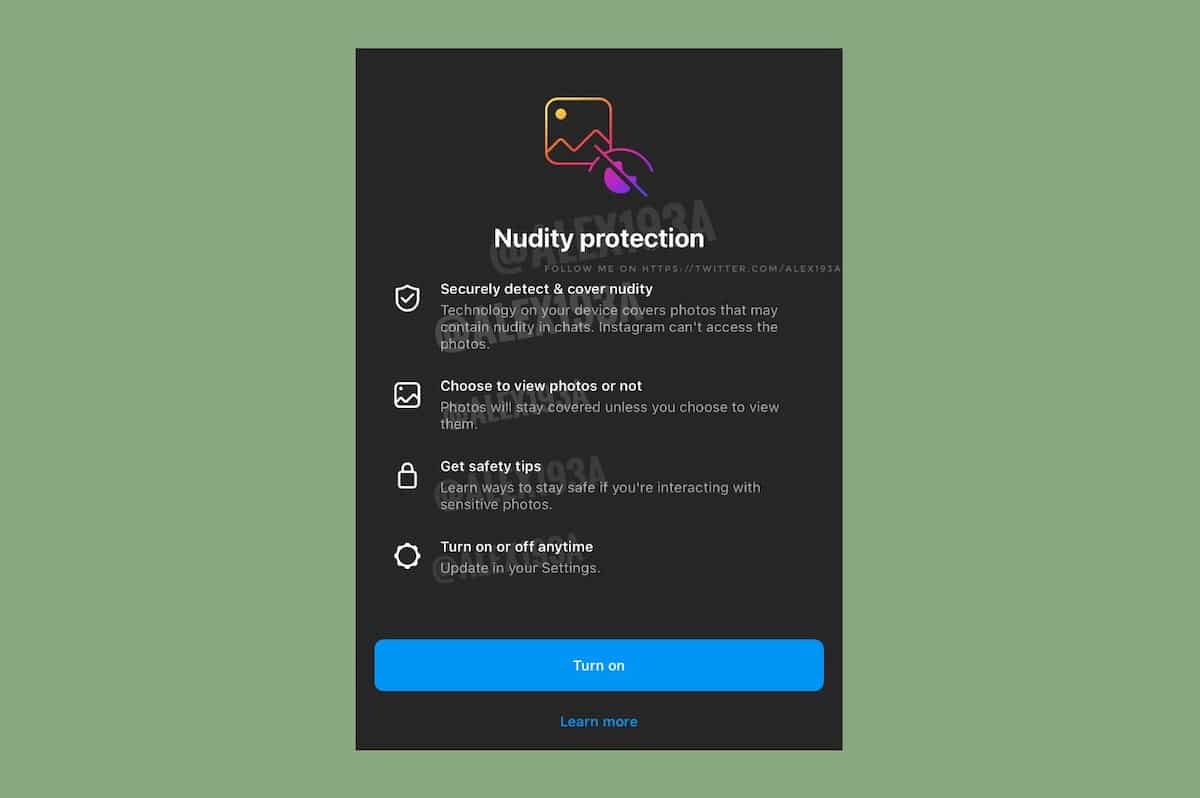Reverse engineering expert @Alessandro Paluzzi found that Instagram is developing a new “Nudity protection” feature to block nude photos in DMs and end cyberflashing.
Cyberflashing is sending unsolicited sexual messages to strangers online which involves sending nude pictures or genitals. Experts believe that cyberflashing is just as harmful as face-to-face sexual abuse because it impacts a person psychologically and emotionally.

Durham Law School’s professor Clare McGlynn, an expert in image-based sexual abuse, told HuffPost that;
“Some will come forward and say [cyber flashing] is harmless. Everyone struggles with the fact it isn’t face to face, but you can’t rank sexual offences like that. The harm of sexual offences is so significant and different forms of offending can have the same impact on different people.”
Instagram’s new “Nudity protection” will be an optional feature that will cover nudity
According to the screenshot of the new feature shared by Paluzzi, “Nudity protection” will be an opt-in feature that will cover nudity in DMs when enabled. The nude photos will stay covered until users choose to view them and users will also have access to ways to stay safe when interacting with such photos.

After Paluzzi leaked the feature, Instagram’s parent company Meta confirmed to The Verge that “Nudity protection” was in the early stages of development and help users “shield themselves” from unsolicited nude photos while preserving their privacy.
Meta spokesperson Liz Fernandez said that the new tech will not give access to users’ chats to Meta and the nude photos would be covered through the technology on their devices.
The technology will not allow Meta to view the actual messages nor share them with third parties. “We’re working closely with experts to ensure these new features preserve people’s privacy, while giving them control over the messages they receive,”
Instagram is already facing scrutiny for doing very little to protect users, especially teens on its platform. But the introduction of features like the new “Nudity protection” is a step in the right direction to ensure users’ protection.
Read More: